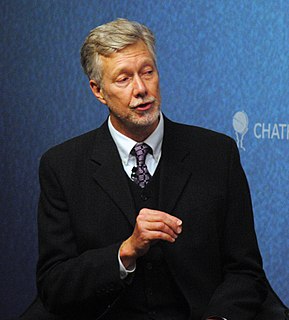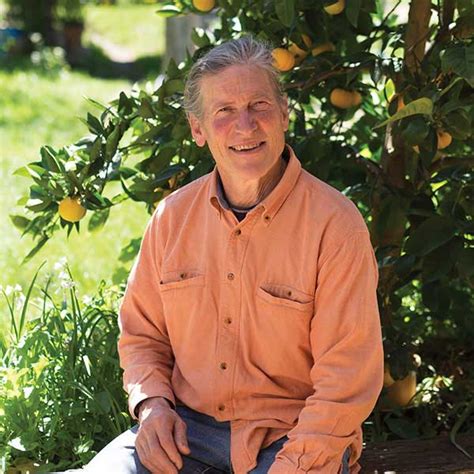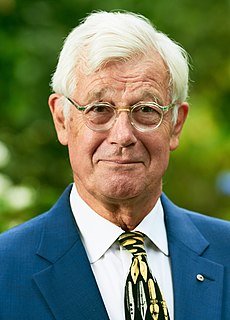A Quote by Dalai Lama
We humans have existed in our present form for about a hundred thousand years. I believe that if during this time the human mind had been primarily controlled by anger and hatred, our overall population would have decreased. But today, despite all our wars, we find that the human population is greater than ever. This clearly indicates to me that love and compassion predominate in the world. And this is why unpleasant events are "news"; compassionate activities are so much a part of daily life that they are taken for granted and , therefore, largely ignored.
Quote Topics
About
Activities
Anger
Been
Believe
Clearly
Compassion
Compassionate
Controlled
Daily
Daily Life
Despite
Events
Ever
Existed
Find
Form
Granted
Greater
Had
Hatred
Human
Human Mind
Human Population
Humans
Hundred
I Believe
Ignored
Largely
Life
Love
Love And Compassion
Me
Mind
Much
News
Our
Overall
Part
Population
Present
Primarily
Taken
Taken For Granted
Than
Therefore
Thousand
Thousand Years
Time
Today
Unpleasant
Wars
Why
World
Would
Years
Related Quotes
Through compassion it is possible to recognize that the craving for love that people feel resides also in our own hearts, that the cruelty the world knows all too well is also rooted in our own impulses. Through compassion we also sense our hope for forgiveness in our friends' eyes and our hatred in their bitter mouths. When they kill, we know that we could have done it; when they give life, we know that we can do the same. For a compassionate person nothing human is alien: no joy and no sorrow, no way of living and no way of dying.
The ultimate source of a happy life is warm-heartedness. This means extending to others the kind of concern we have for ourselves. On a simple level we find that if we have a compassionate heart we naturally have more friends. And scientists today are discovering that while anger and hatred eat into our immune system, warm-heartedness and compassion are good for our health.
If you understand it from an ecological or sustainability perspective, agriculture is the primary way we meet most of our needs, and it's the greatest form of human intervention on our environment. It has intimately shaped our culture as powerfully as industrial modernity, but for ten thousand years rather than two hundred.
In daily practice, reflect on the benefits of love, compassion and kindness, then reflect on the disadvantages of anger. Such continuous contemplation, the growing appreciation of love, has the effect of reducing our inclination towards hatred and increasing our respect for love. By this means even anger can be diminished.
I don't mind being labeled as a political songwriter. I've chosen to do that. What really annoys me is being dismissed as a political songwriter. That really pains me, because life isn't all about love; it's not all about politics, either. It's a beautiful mixture of events that absolutely baffle you, and you think, "Why can't I do something about that?", whether those events are in your bedroom, or out there in the wide world. In our daily lives we engage with them at different times, and I'm trying to write about the whole human experience, or my perspective on it anyway.
I chose Congo in order to become close to a place that we had turned away from. It isn't present in our imaginations, in the stories we tell each other. Yet it's relevant to our lives and to our worlds, in a practical way. Congo supplies raw materials for the things that we use on a daily basis. We are intimately linked to Congo, economically. We're linked to it through human events that are occurring there, that affect all of us, and yet you don't find narratives of Congo present in our lives.
Human language has a vocabulary suited to our daily needs and functions: the shape of any human language maps approximately to the needs and activities of our mundane lives. But few would deny that there is another dimension of human existence which transcends the mundane: call it the soul, the spirit: it is that part of the human frame which sees the shimmer of the numinous.
Many agricultural counties are far more important in the life of the State than their population bears to the entire population of the State. It is for this reason that I have never been in favor of restricting their representation in our State Senate to a strictly population basis. It is the same reason that the founding fathers of our country gave balanced representation to the States of the Union, equal representation in one House and proportionate representation based upon population in the other.
It has taken me a long time to realize where I most disagree with Marx. His assessment of capitalism is far too favorable. He took its instability, inhumanity and irrationality to be signs that it was a merely transitional form, which had delivered into humanity's hands the means to a much better way of life than any that have ever existed on earth. Marx could not bring himself to believe that our species is so benighted, irrational and slavish that it would put up with such a monstrous way of life.
...there is an optimal balance, depending on the manner of man's life, between the density of human population and the tolerances of nature. This balance, in the case of the United States would seem to me to have been surpassed when the American population reached, at a very maximum, two hundred million people, and perhaps a good deal less.
If the rate of expansion one second after the Big Bang had been smaller by even one part in a hundred thousand million million, it would have recollapsed before it reached its present size. On the other hand, if it had been greater by a part in a million, the universe would have expanded too rapidly for stars and planets to form.







































